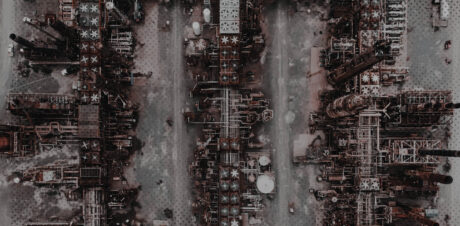UN Prohibitions on Russia-DPRK Joint Ventures
Russia has faced consistent criticism for violating international sanctions on the Democratic People’s Republic of Korea (DPRK). The most recent report of the United Nations (UN) Security Council’s Panel of Experts on North Korea identified the Russian Federation as one of 15 UN Member States home to “possible cooperative entities or joint ventures” with the DPRK. These entities are prohibited under UN Security Council Resolution 2375 (2017).
Russian companies recently participated in an international trade fair that took place in Pyongyang. Photos posted on social media show Russian diplomats perusing the stall for a Russian pharmaceutical company adorned with Russian and DPRK flags.
Russia’s attendance comes as no surprise, as it continues to pursue the types of cooperative entities prohibited by UN. In addition to the Panel of Experts report, open-source Russian corporate records provide evidence of Russian joint ventures with the DPRK.
Russia Denies Any Violations
UN Resolution 2375 prohibited “the opening, maintenance, and operation of all joint ventures or cooperative entities, new or existing, with DPRK individuals.” Specifically, it ordered the closure of any existing entities within 120 days of the resolution’s passage on Sep 11, 2017.
Unsurprisingly, the Russian government denied UN investigators’ claims that they were violating Resolution 2375. Russian officials told the Panel that Russian companies owned solely by DPRK individuals are not joint ventures. They further contended that “in Russian law, no such form of legal person [as a joint venture] exists.”
Resolution 2375 does not explicitly address companies solely owned by DPRK individuals. However, it clearly prohibits entities that have joint Russia-DPRK ownership and/or control. Russia’s response to the UN failed to address this core issue.
Regardless, open-source Russian corporate records clearly show the existence of DPRK-Russia cooperative entities, as prohibited by Resolution 2375.
Russian Companies with Joint DPRK-Russian Ownership
The UN Panel of Experts report identified several Russian entities in direct violation of Resolution 2375. We have identified dozens of additional Russian companies with joint DPRK-Russian ownership and/or control.
Consider, for example, Russian oil and natural gas company Yuson LLC. According to its Russian Federal Tax Service filing, Yuson LLC has two shareholders: Russian company Salyud Stroy LLC owns 75%, and DPRK company Korea Oil Exploration Company owns 25%.
Contrary to Russia’s response to the UN investigators, Russian companies and citizens continue to be complicit in facilitating Russia-DPRK joint ventures and cooperative entities.
Russian Companies Named “Joint Venture”
The Russian government emphasized that “in Russian law, no such form of legal person [as a joint venture] exists.” Technically, that’s true. However, several Russian companies with DPRK ownership have featured the exact Russian phrase “joint venture” (совместное предприятие) in their names.
For example, the corporate structure of Fiton Joint Russian-Korean Enterprise LLC, a Russian drug manufacturing company, is technically no different than any other Russian limited liability company. But the company’s name should raise eyebrows—as should its 40% ownership by a subsidiary of the DPRK Ministry of Health.
This is not an isolated case. DPRK company Korea Paekma Trading Corporation is the 50% shareholder of Russian logging company Rosayuma Joint Venture LLC. Another Russian company, Tisrimob Joint Venture LLC With Foreign Investments, is 50% owned by a subsidiary of the DPRK Forestry Ministry.
Continued Economic Cooperation
The Russian government insists that DPRK-linked economic activity in its territory does not violate its commitments to uphold UN sanctions. But Russian public records clearly show that Russia still engages in joint ventures with the DPRK. Russia’s recent participation in the Pyongyang trade fair only further illustrates its interest in maintaining economic ties to the DPRK.
The Russian public records data used to power this research is available through Sayari Search! If you’re curious how this data could drive insights for your team, please reach out here.



